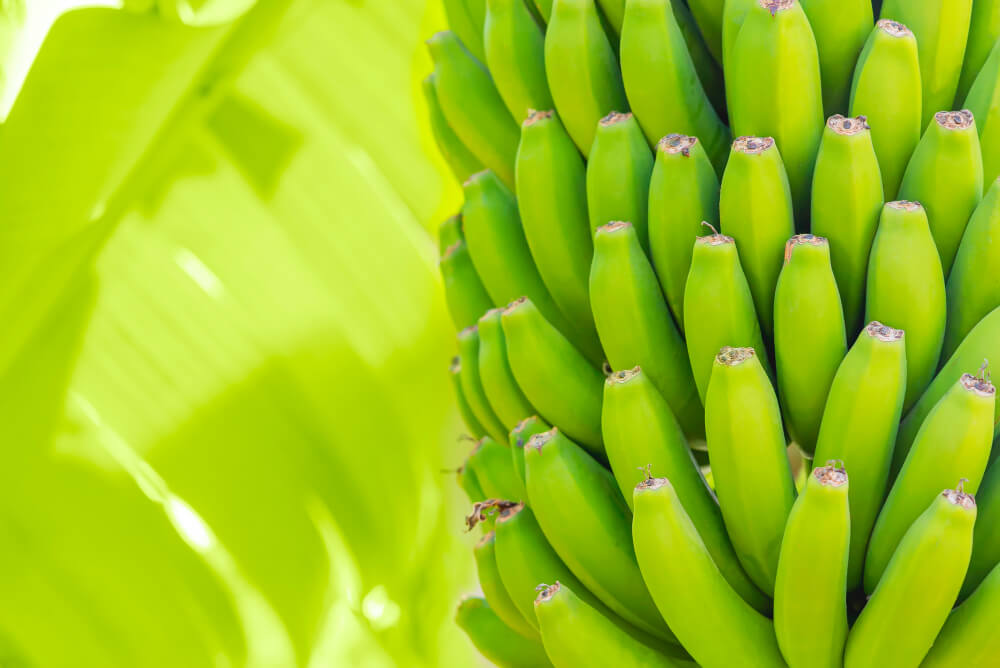
Uganda’s agricultural sector has taken a bold step forward with the introduction of a revolutionary banana variety, NARITA 17 (NAROBAN6). Developed through a strategic partnership between the International Institute of Tropical Agriculture (IITA-Uganda) and the National Agricultural Research Organisation (NARO), this new variety is set to transform the country’s banana production landscape.
With significantly higher yields, improved disease resistance, and better taste, NARITA 17 is a game-changer for Ugandan farmers who have long battled declining banana harvests due to pests and diseases.
A Breakthrough in Banana Farming
Bananas are a staple crop in Uganda, forming an essential part of the country’s diet and economy. However, traditional varieties like ‘Mbwazirume’ have been vulnerable to various threats, reducing farmers’ productivity and profits.
NARITA 17 is set to reverse this trend by offering an astonishing 243% higher yield compared to the conventional banana varieties.
“This is a game-changer for banana farmers in Uganda,” said a representative from IITA-Uganda. “Farmers will now have access to a variety that increases production and reduces losses due to diseases.”
The introduction of this high-yielding banana aligns with Uganda’s broader strategy to enhance food security and improve farmers’ livelihoods by leveraging scientific advancements in agriculture.
Strengthening Africa’s Banana and Plantain Breeding Efforts
The success of NARITA 17 is the result of years of dedicated research and collaboration in plantain and banana breeding.
Recently, the IITA-CGIAR Plantain Breeding Program held a specialized training program for agricultural experts from Nigeria’s National Horticultural Research Institute (NIHORT). From October 28 to November 8, 2024, the training focused on cutting-edge breeding techniques, including:
✅ Tissue culture – Enabling mass production of disease-free plantlets
✅ Macro propagation – Enhancing the multiplication of high-quality banana plants
✅ Field management – Improving cultivation techniques for better yields
✅ Digital data capture – Utilizing technology to track and improve banana breeding efforts
A major highlight of the training was the introduction of MusaBase, a global research database that provides crucial insights to optimize banana breeding programs.
This initiative is part of the IITA Accelerated Breeding Initiative, led by renowned plantain and banana breeder Rony Swennen, ensuring African farmers have access to superior banana varieties.
Boosting Food Security Through Agricultural Innovation
Uganda’s latest agricultural breakthrough is happening in the backdrop of broader efforts to strengthen food security across Africa.
The African Development Bank (AfDB) recently provided a €5 million grant to IITA as part of the second phase of the Technologies for African Agricultural Transformation (TAAT-II) program. This funding aims to support climate-smart farming and improve crop resilience in multiple African nations, including Uganda, Nigeria, Tanzania, Mozambique, Malawi, and Rwanda.
At the signing ceremony in Abuja, Dr. Abdul Kamara, AfDB’s Director General for Nigeria, emphasized the program’s importance:
“TAAT is not just an agricultural program; it is a revolutionary initiative that continues to harness cutting-edge technologies, supporting Africa’s food sufficiency.”
Dr. Simeon Ehui, IITA’s Director General, also highlighted the significance of the grant:
“This investment will help CGIAR bring proven technologies to scale, strengthen seed systems, and empower farmers with climate-resilient solutions.”
By investing in research, technology, and farmer training, Africa is positioning itself to reduce food insecurity and improve agricultural productivity on a large scale.
What This Means for Ugandan Farmers
For smallholder farmers in Uganda, the introduction of NARITA 17 presents a tremendous opportunity. With a higher yield potential, improved resistance to diseases, and better taste, this variety can significantly:
✔ Increase farmers’ incomes – More bananas per acre mean greater profits.
✔ Improve food security – Ensuring a stable supply of bananas, a dietary staple.
✔ Reduce losses – Better disease resistance means less crop destruction.
✔ Enhance sustainability – Climate-smart farming methods for long-term benefits.
As agricultural experts continue to refine breeding techniques and provide support to farmers, the future of Uganda’s banana industry looks promising. The introduction of NARITA 17 is not just a breakthrough—it is a lifeline for thousands of farmers who depend on bananas for their livelihood.
Final Thoughts
Uganda’s commitment to agricultural research and innovation is paying off. With the launch of NARITA 17, farmers can look forward to higher yields, better disease resistance, and increased incomes.
This development underscores the power of collaboration, as organizations like IITA, NARO, and AfDB continue to drive Africa’s agricultural revolution.
For Uganda, the future is ripe with possibilities—and it all starts with a banana. 🍌
Stay updated with the latest farming tips and agriculture industry news from Africa by subscribing to our newsletter. Don’t miss out on valuable insights and updates. Follow us on Twitter, LinkedIn, and Facebook to join our farming community and stay connected with us.


















